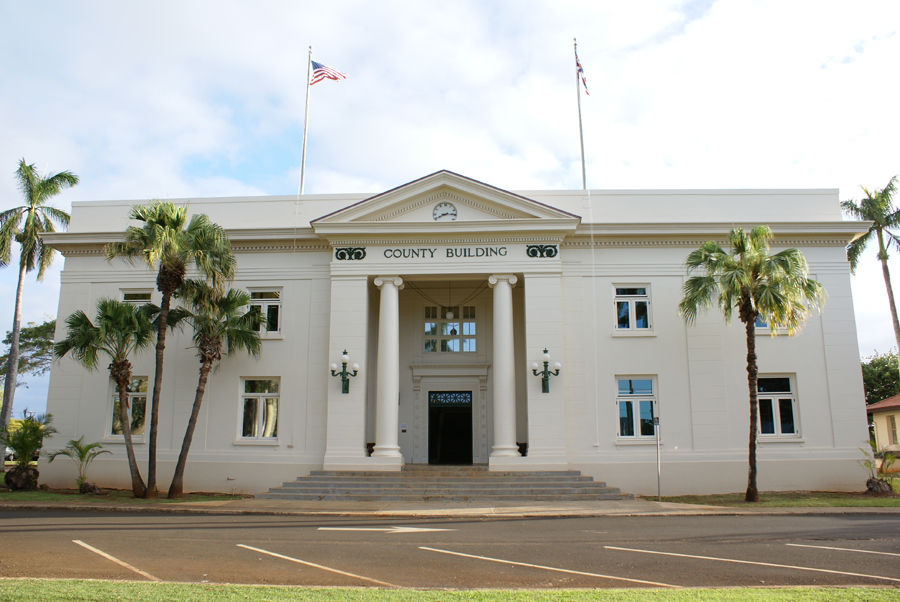LIHUE — After two hours of discussion during committee Wednesday, Kauai council members voted 4-3 to recommend killing a proposed bill that would increase the General Excise Tax. Citing potential impact on low-income families, the administration’s ability to follow through
LIHUE — After two hours of discussion during committee Wednesday, Kauai council members voted 4-3 to recommend killing a proposed bill that would increase the General Excise Tax.
Citing potential impact on low-income families, the administration’s ability to follow through with projects and other solutions, councilmen Gary Hooser, Ross Kagawa, Mel Rapozo, council chair, and KipuKai Kuali’i voted to kill the bill.
“The GET is an especially onerous tax, and I cannot and will not support it,” Hooser said.
The tax increase should only be used as a last resort, Kuali’i added.
“The GET is a regressive tax that will hit our struggling families the most,” he said.”It should never happen.”
Kuali’i said there are other solutions to raising the funds for $100 million worth of backlogged road repairs, which the Department of Finance said could be funded by raising the GET a quarter a percent.
It will take 17 years to repair 303 miles of roads, said Lyle Tabata, acting county engineer.
One alternative to the GET is to prepare a charter amendment that would allow Kauai residents to vote on where the funding for the road repair projects will come from, Kuali’i said.
“The people should have the right to decide,” he said.
Other solutions are transferring money from the general fund to the highway fund, which will then go to repairing roads, and imposing taxes on the visitor industry.
“I’ve been working with councilmember (Mason) Chock at looking at the visitor industry, primarily because I don’t believe visitors pay their fair share,” Hooser said. “I continue to think visitors use roads disproportionately to the residents, and that should be look at.”
Hooser also proposed the council and administration strike a compromise, and split the $6 million per year the GET would create.
“If the administration can come up with $3 million worth of cuts, perhaps the council could come up with $3 million in revenue,” he said. “That way, we’re taking a little bit of both.”
But Ken Shimonishi, director of finance for the County of Kauai, said making cuts would be a challenge.
“We are looking toward a more manageable budget,” he said. “But that would be difficult.”
Council members JoAnn Yukimura, Chock and Arryl Kaneshiro voted in favor of the GET increase.
“To get up to $100 million, taxes will have to be raised, and cuts will have to take place,” Chock said.
Kaneshiro, who is the chair of the budget and finance committee, said it’s a question of responsibility.
“No one wants to pay taxes. But what it comes down to is responsibility,” he said. “Is it fair that there’s $1 million in backlogged road repair? I don’t think it’s fair to us that we have to deal with it. But is it fair to continue to kick the can down the road? I don’t think so. We have to act.”
The longer the council does nothing, the greater its obligation will be, Kaneshiro added.
Yukimura agreed.
“Our job is to provide services and to get the job done. And in order to get the job done, we need to get money,” she said.
During the discussion, Kagawa said the county needs to prove to the people that if taxes were to be increased, that money wouldn’t be in vain.
He suggested improving the roads by finishing small projects first.
“Let’s consider baby steps,” Kagawa said. “Let’s prove to the people we can fix road and bridges, and show them the increased taxes will be well-spent.”
The priority should be on major road repair projects, not beautification ones, Rapozo said.
“It’s the luxuries in life we have to postpone,” he said. “If you want to put a pool in your backyard, but your roof is leaking, you fix the roof.”
The next step for GET will be in council, where a final action will take place.
In 2015, the state Legislature granted counties the right to establish a one-half percent surcharge on the GET. Counties have until July 1 to enact an ordinance that would increase the tax from Jan. 1, 2018 to Dec. 31, 2027.
Under the county’s initial proposal, a half percent tax increase was projected to generate over $20 million per year for the next 10 years for transportation and infrastructure improvements.


